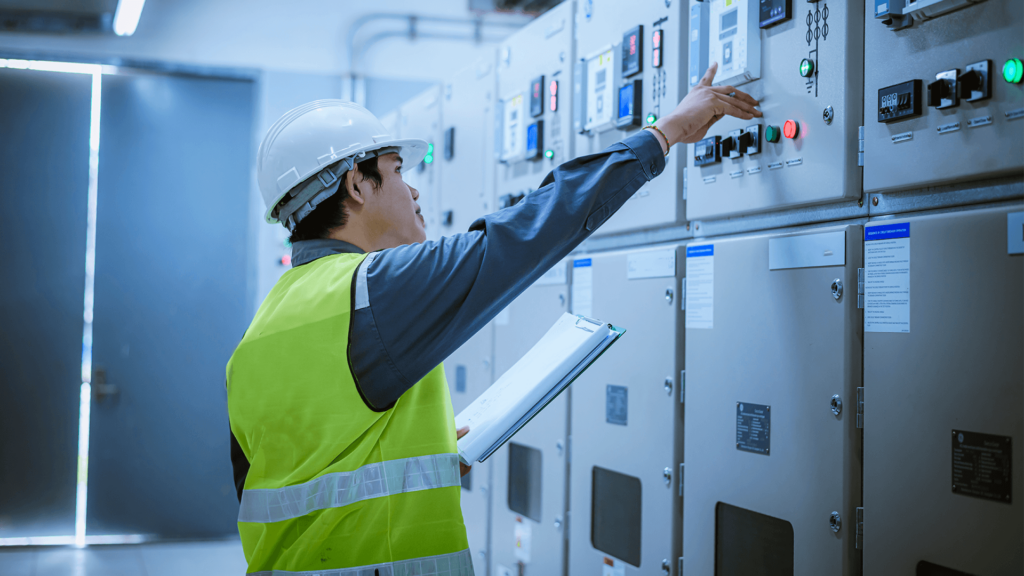Why Reliable Power Distribution Systems are Vital for Hospitals
Hospitals must always be up and running to protect their patients as well as sensitive data stored in their computer systems. Even a moment of downtime can have disastrous, and in some cases, life threatening consequences. This is why electrical power distribution systems are so important, because they ensure hospitals get the energy they need to operate from the primary power source. Just like how hospitals must always be ready to serve patients at moment’s notice, their systems must do the same. Continue reading to learn about some of the unique electrical challenges hospitals face and how you can prepare for them to prevent costly downtime and expenses.
Increased Demand for Electrical Power
As server rooms grow in hospitals, more equipment is required to help them operate. To ensure distribution of electrical power in server rooms, rack power distribution units (rPDUs) are a must. These devices not only ensure every piece of equipment in your hospital is getting the energy it needs to run, but they also prevent overheating and excessive energy use.
Additionally, backup power systems and monitoring software need to be installed to prevent unexpected downtime or complete system failure. Server rooms also require specific environmental conditions to protect every piece of equipment from overheating or humidity damage. As a result, thermal management and liquid cooling systems are necessary to ensure the safety of your equipment. However, all of these devices need their own power to run, meaning your power distribution system needs to be up to date and able to handle your entire load.
Risk of Power Outages
Power outages can cause severe risks to operations and patient safety, as vital equipment is highly vulnerable to even brief interruptions. Any disruption in power distribution can cause life-saving systems to fail, risking patient lives and causing panic in your healthcare facility. Even a moment of downtime could put a patient’s life in danger and force personnel into immediate action.
This is why a reliable uninterruptible power supply (UPS) system is necessary as it ensures a seamless transition from primary to secondary power sources during outages. This prevents dangerous downtime and allows hospital systems to continue running, even under less-than-ideal circumstances. UPS systems also offer various options, so matter the size or energy needs of your healthcare facility, there’s a solution that will work for you. If a power outage occurs, you want to be ready with building battery backups to keep your hospital running until the main power source or generator turns on. As an extra layer of protection, installing room battery backups and individual equipment batteries in critical systems will help ensure your most vital operations can continue while you wait for power to return.
Aging Infrastructure
Outdated systems aren’t just slow, they are also risky to use in any healthcare facility. Older equipment often lacks the capacity to handle increased power loads required by modern medical equipment. As a result, hospitals with these outdated devices can face frequent maintenance and an increased risk of power outages. Upgrading to advanced PDUs can help since these systems are designed to optimize power distribution, ensuring that electricity is efficiently delivered to all essential equipment.
The best way to ensure distribution of electrical power makes it to all your systems is to use remote monitoring. These tools provide real-time visibility into the health of your electrical network, allowing you to spot and fix potential issues before they escalate. Not only do these upgrades improve reliability, but they also enhance overall safety and efficiency of hospital operations so you can continue to meet your patients’ needs.
Energy Sustainability
Hospitals use energy very quickly, yet another reason why power distribution is so important. Modernizing electrical systems to include advanced PDUs and energy-efficient technologies can lead to substantial energy and cost savings. For example, using equipment with intelligent power distribution systems ensures that energy is only used where and when it’s needed, reducing waste. Implementing combined equipment like the Vertiv™ SmartRow™ 2 can also help lower a hospital’s carbon footprint by running cooling, UPS battery backup, and power distribution systems all in the same piece of equipment. Not only does effective power distribution save you time and money, but it also helps hospitals promote energy sustainability while continuing reliable patient care.
Upgrade Your Power Distribution Efforts with JG Blackmon & Associates
The risk of a failed system in healthcare can be more detrimental than in any other industry. Hospitals and healthcare facilities must continuously update their equipment to adapt to ever-changing regulations and increased power demands.
As hospitals and healthcare facilities become increasingly more dependent on power, the availability of an uninterrupted power supply becomes extremely critical.
We have a wide range of knowledge and experience with power distribution systems and healthcare environments. Our techs can ensure power sustainability, efficiency, and reliability for your healthcare facility, regardless of size or supply needs. Contact us today to find out how our knowledgeable professionals can help you maximize your facility’s power supply and distribution.

